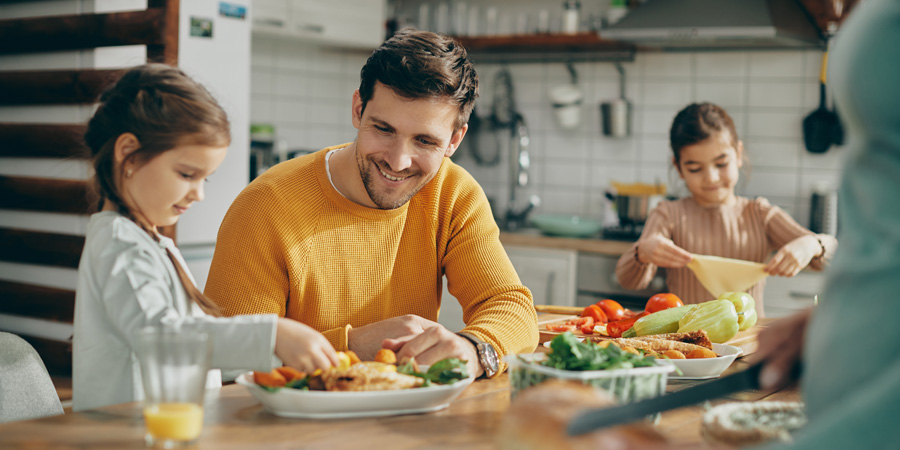Social influence in food choices: the good and the bad
Editorial

The influence of other people on our eating behaviour has been explored for decades. If the person next to you doesn’t fill out their plate, you likely won’t either (McFerran, B., et al, 2010). When we’re with friends, we tend to choose what they do (Higgs et al., 2020). This influence has been consistently used as a lever in interventions to encourage people to make healthier food choices. Nonetheless, social influence can also be a barrier to having a healthy diet, since expectations of what others show us is “normal” to eat can decrease flexibility in food choices (Bian & Markman, 2020).
The Global Fruit and Veg Newsletter of this month presents three articles that dive into these two sides of social influence, levers, and barriers of healthy eating, that should be considered to design effective interventions to encourage healthy food choices.
The first article explores how exposure to what others do can influence our snack choices. The authors showed that being exposed to how much and how often people consume fruit and vegetables results in lower-calorie snack choices for the following day. However, they found that this exposure did not influence intentions to consume healthy snacks the following week, indicating that exposure to others’ behaviours can influence actual food choices in the short term but not long-term intentions.
The second article focuses on the varying degree of influence that groups can have on us, with closer groups such as the people we share meals with having greater influence than fellow nationals. They found that people chose environmentally friendly and healthy foods when they perceived that the people that they share meals with would make the same kind of choices. Importantly, beliefs about individuals from the UK in general did not influence food choice, suggesting that the people closest to us have a greater influence on our food behaviour than those who are more distant.
The third article dives into the idea that social influence can be a deterrent of healthy food choices. In particular, this work discusses how social expectations about men and women can matter for meat consumption and openness to vegetarianism in Australia. It was found that more masculine men are more resistant to reducing their meat intake and less open to becoming vegetarian. To conclude, the authors suggest that people who are more likely to conform to social expectations of their gender may be also less likely to engage in behaviours that deviate from food social norms.
The three studies examined the different facets of how society can influence individual behaviour. On the one hand, social influence can encourage healthier food choices: exposure to others’ consumption of healthy foods, especially from the people closest to us, has proven to be an effective intervention. On the other hand, social expectations (including gender norms) may be harmful and hinder the adoption of greener diets, especially in countries with high meat consumption. Future interventions should consider both aspects of social influence in their motivation and design.
Adoracion Guzman Garcia is a PhD student in Cognitive Science at the Institut Paul Bocuse Research Center, the CHArt laboratory at the EPHE – PSL and Aprifel. Before her PhD, she obtained degrees in Cognitive Science from Yale University and the ENS-PSL, Universite Paris Cite and EHESS, where she gathered six years of research experience.
Her thesis explores the psychological barriers to variety in food choice and the consumption of fruits and vegetables; in particular, she investigates how social norms are processed, which cognitive biases can guide food behaviours, and how to counter them in interventions to encourage a well-balanced diet.

